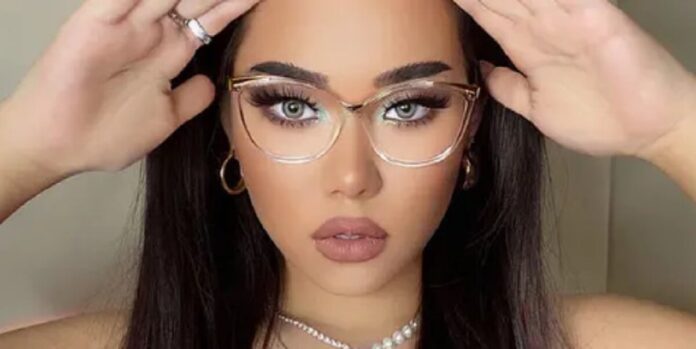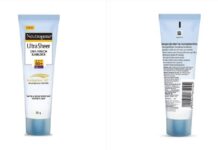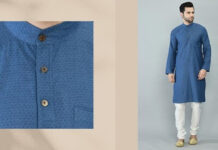Quick Answer
Blue light glasses help reduce eye strain and improve sleep by blocking blue light from screens and artificial lights. Here’s when you should wear them:
- Using Smartphones – Wear them during long phone use to prevent eye discomfort.
- Gaming Sessions – Use them during extended gaming to reduce eye fatigue.
- Computer Use – Essential for long hours on computers to help with focus and comfort.
- Working Under Artificial Lighting – Useful in fluorescent or LED-lit areas to ease eye strain.
- Evening and Nighttime Use – Wear them before bed to help sleep better by reducing blue light exposure.
- Graphic Design or Detailed Work – Improve clarity and reduce glare for detailed tasks.
- For Children and Teenagers – Protect young eyes from digital eye strain due to excessive screen time.
To check if your glasses block blue light, look at the product details or do a simple test using a blue light torch.
Introduction
With screens being such a big part of our lives—from work and studying to gaming and scrolling-our eyes are always bombarded with blue light. That can cause tired eyes, trouble sleeping, and may even cause long-term damage to the eyes. This is where blue light glasses come in: they help block out the harmful blue light, making it easier on the eyes. Knowing when to wear these glasses, like during long sessions of screen time or at night, can make a big difference in how your eyes feel and function.
Why Are Blue Light Glasses Important and How Do They Work?
In our screen-filled world, blue blockers have become popular as an easy fix for issues related to excess screen time. These glasses help minimize eye strain and sleep disruptions caused by blue light coming from screens and indoor lighting. Knowing what blue light glasses do, how they work, and the types available can help you make a decision on whether they’re right for you.
What Exactly Are Blue Light Glasses?
Blue light glasses are designed primarily to filter out or block blue light coming from digital screens, LED lights, and even fluorescent bulbs. Blue light belongs to the visible spectrum, has a short wavelength, and has high energy; therefore, it causes eye discomfort with prolonged usage. With these blue light glasses, exposure will be lowered, thereby potentially reducing the incidence of eye fatigue and promoting protection of the eyes over longer periods.
How Do Blue Light Glasses Work?
These glasses use specially designed lenses that either absorb or reflect a part of the blue light, reducing the intensity before it reaches the eyes. It is during this filtration process that signs and symptoms of digital eye strain, including but not limited to dry eyes, headache, and blurred vision, begin to decrease. Moreover, since blue light inhibits the production of melatonin and interferes with sleeping patterns, the use of these glasses, at least in the evening, permits your body to take the normal course of its daily rhythm.
Why You Should Wear Blue Light Glasses
Wearing blue light glasses can really make a difference if you’re glued to screens all day. Here’s how they help:
- They reduce eye strain and fatigue, making it easier to focus on your work.
- By cutting down on the discomfort from long screen time, they help you stay more comfortable and efficient throughout the day.
- Some people even find that these glasses improve their sleep quality after a long day in front of digital devices.
Different Lenses for Your Blue Light Glasses
Blue light glasses aren’t one-size-fits-all; there’s a variety to suit different lifestyles. Here’s what you can choose from:
- Clear lenses offer a simple, everyday look while still blocking harmful blue light.
- Tinted lenses provide extra protection and are ideal for high-screen exposure environments.
- Advanced lenses come with smart coatings for added benefits like anti-glare, scratch resistance, and anti-reflective properties, boosting comfort and clarity even more.
When Should You Wear Blue Light Glasses?

Knowing when to wear blue light glasses can help you get the most out of them for your eye health and overall well-being. Here’s a look at situations where these glasses can be especially helpful:
Using Smartphones
It is also important to wear blue light glasses during prolonged use of smartphones, as these devices emit a lot of blue light. Long screen time on the phone can cause digital eye strain, which is manifested by symptoms such as dry eyes, headaches, and difficulty focusing. Wearing blue light glasses will reduce these effects and make it easier and more comfortable to use your phone for extended periods.
Gaming Sessions
For avid gamers who spend hours immersed in gaming, blue light glasses can be highly beneficial. Games often involve intense visual engagement, which can exacerbate eye fatigue and blur vision over time. Blue light glasses help filter out harmful light, reducing eye strain and allowing gamers to play comfortably without sacrificing their gaming performance.
Computer Use
Office workers and students tend to spend more time operating computers, so blue-blocker glasses are a necessary tool. They would help people ease the strain on their eyes from constantly looking at a computer screen and make the person more comfortable and productive throughout the day. They also serve to keep people focused and avoid possible headaches from long-term use of the computer.
Working Under Artificial Lighting
The blue light glasses are helpful for workers who work in an environment with artificial lighting conditions like fluorescent and LED lights. Such lights also emit blue light, adding to the overall exposure that causes discomfort. Wearing blue light glasses while working in such an environment will relieve eye strain and give clarity of vision, thus making it a comfortable environment to work in.
Evening and Nighttime Use
Blue light exposure during the evening and night disrupts the circadian rhythm and interferes with melatonin production, which may reduce sleep quality. Wearing blue light glasses before bed, especially when using electronic devices or watching television, can enhance sleep by minimizing the impact of blue light on your body’s natural sleep-wake cycle.
Graphic Design or Detailed Work
They would increase comfort and accuracy in tasks such as graphic design that involve long periods of near-sighted work with digital media. Glasses of this nature also cut glare and improve contrast, enabling clear, prolonged periods of attention to fine detail without eye fatigue.
For Children and Teenagers
Given the rising screen exposure for both education and entertainment among children and teenagers, protecting young eyes is important. These blue light glasses can help protect developing eyes from potential digital eye strain, making sure young people remain comfortable and focused during their screen time activities.
How to Tell If Glasses Are Blue Light Filtering

Identifying whether glasses are truly designed to filter blue light is important to ensure you’re getting the protection you expect. Here are some reliable methods and tips to help you determine if your glasses have blue light filtering capabilities:
Check Manufacturer Specifications
Probably the easiest way to check if your glasses are blue light filtering is by looking at the manufacturer’s specifications. Find information in the product description or on the packaging indicating specifically that it blocks blue light, usually in percentage terms, such as “blocks 30% of blue light.” Most good manufacturers would always specify this clearly.
Use a Blue Light Torch Test
A practical method to test blue light filtering glasses is using a blue light torch. Shine the blue light through the lenses onto a white piece of paper. If the lenses are effective, they should block or significantly reduce the amount of blue light that passes through and reaches the paper. This can show a visible difference compared to shining the light without the lenses acting as a filter.
Identify Blue Light Lenses by Tint and Reflection
Another way to identify blue light filtering glasses is by examining the lenses themselves. Many blue light glasses have a slight tint, usually yellow or amber, which helps filter out the blue light spectrum. Additionally, when you hold the glasses under a light source, you might notice a subtle blue or purple reflection on the lens surface, indicating the presence of a blue light coating.
Protect Your Eyes, Enhance Your Life
Using blue light glasses can make a big difference in how comfortable and healthy your eyes feel, especially with all the screen time we have these days. These glasses help cut down on eye strain, support better sleep, and prevent long-term eye issues from too much exposure to screens and artificial lights. Knowing when to wear them—like while using your phone, gaming, working on the computer, or watching TV at night—can really improve your daily life. So why wait? Find a pair of blue light glasses that suits your needs and start taking better care of your eyes today.









